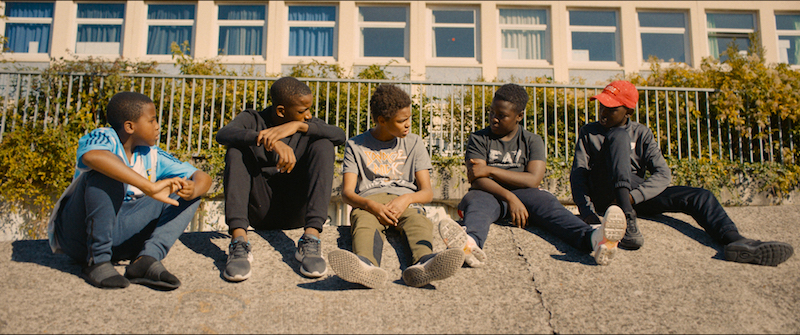The only thing confusing with Les Misérables is its pointedly provocative title, as there are no costumed urchins and no singing involved. Searching online to find the UK cinemas where it’s playing this week entails a trek past the execrable 2012 musical of the same name, but it’s well worth tracking down a screen that's showing this exhilarating and intelligent new film.
Les Misérables 2019 won festival prizes last year and was a box office hit in France and Hong Kong before covid delayed its UK opening. The action is set over two days in Montfermeil (the location shared with Victor Hugo), an impoverished Paris suburb where people from different ethnicities uneasily coexist. Its director, Ladj Ly grew up in the same deprived neighbourhood, which is home to a large number of people with roots in the former French colonies of Mali and Senegal. After cutting his teeth on powerful documentaries, he's moved into features with this neo-realist policier. While Les Misérables is fiction, it is very much based on Ly’s own experiences as a young black man growing up in Montfermeil, particularly during the weeks in 2005 when riots broke out and he took to the streets with his DV camera to record the unrest.
We are immersed from the outset in the complexities of policing a neighbourhood where cops have built relationships with the official and unofficial local powerbrokers, some of whom run drugs, prostitution and protection rackets. Tensions mount when a new officer, Stephane (Dennis Bonnard, main picture, far right) joins the regulars of the Anti Crime Squad. He finds himself working alongside a white cop Chris (Alexis Manenti, main picture, centre) who revels in his nickname "the Pink Pig". He considers himself "the law" in Montfermeil and is backed up by his long-standing black partner (Djebril Zonga). Ly, who also co-wrote the script, shows the difficulties the police have when they feel themselves to be constantly under threat. The need to have your partners’ back at all times in order to survive, directly clashes with the moral imperative to call out colleagues' racist and inflammatory actions. The way the ethics and realities of police culture are explored by Ly puts the increasingly attenuated storylines of Between the Lines to shame.  Running parallel to the squad's story is a vivid portrait of the local teenagers, sweating in the summer heat. School’s out and they’re just trying to have fun in an urban wasteland of derelict housing and neglected playgrounds. We first meet nerdy Buzz (played by the director’s son Al-Hassan Ly) who is using his drone camera to take peeping tom footage of the local girls and making tempers rise. But it’s another teenager, Issa (Issa Perica, pictured above, centre) who impulsively kidnaps a lion cub from a circus troupe of ferocious gypsies, which triggers the clash with the police. The betrayal of the younger generation by some of their elders speaks to Ly's complex take on black-white relations; this isn't a simplistic tale of saintly black people and incomprehensibly evil white cops.
Running parallel to the squad's story is a vivid portrait of the local teenagers, sweating in the summer heat. School’s out and they’re just trying to have fun in an urban wasteland of derelict housing and neglected playgrounds. We first meet nerdy Buzz (played by the director’s son Al-Hassan Ly) who is using his drone camera to take peeping tom footage of the local girls and making tempers rise. But it’s another teenager, Issa (Issa Perica, pictured above, centre) who impulsively kidnaps a lion cub from a circus troupe of ferocious gypsies, which triggers the clash with the police. The betrayal of the younger generation by some of their elders speaks to Ly's complex take on black-white relations; this isn't a simplistic tale of saintly black people and incomprehensibly evil white cops.
The action sequences will satisfy anyone who craves footage of homemade bazookas and the righteous rage of a mob of angry teenagers outwitting the authorities. The bird's eye drone shots of Montfermeil capture the overcrowded, neglected tenements; it's a tinder-box of deprivation just waiting for the first spark to set it aflame. It’s a film jammed with vivid performances from a fresh cast and boasts a propulsive score. Cleverly structured with several subtle, thought-provoking twists in its tale, Les Misérables’ release could hardly be more timely in the era of Black Lives Matter and Europe's reappraisal of its white colonial history. This is one of those rare movies it’s worth venturing into the cinema to watch and not just waiting to stream.















Add comment